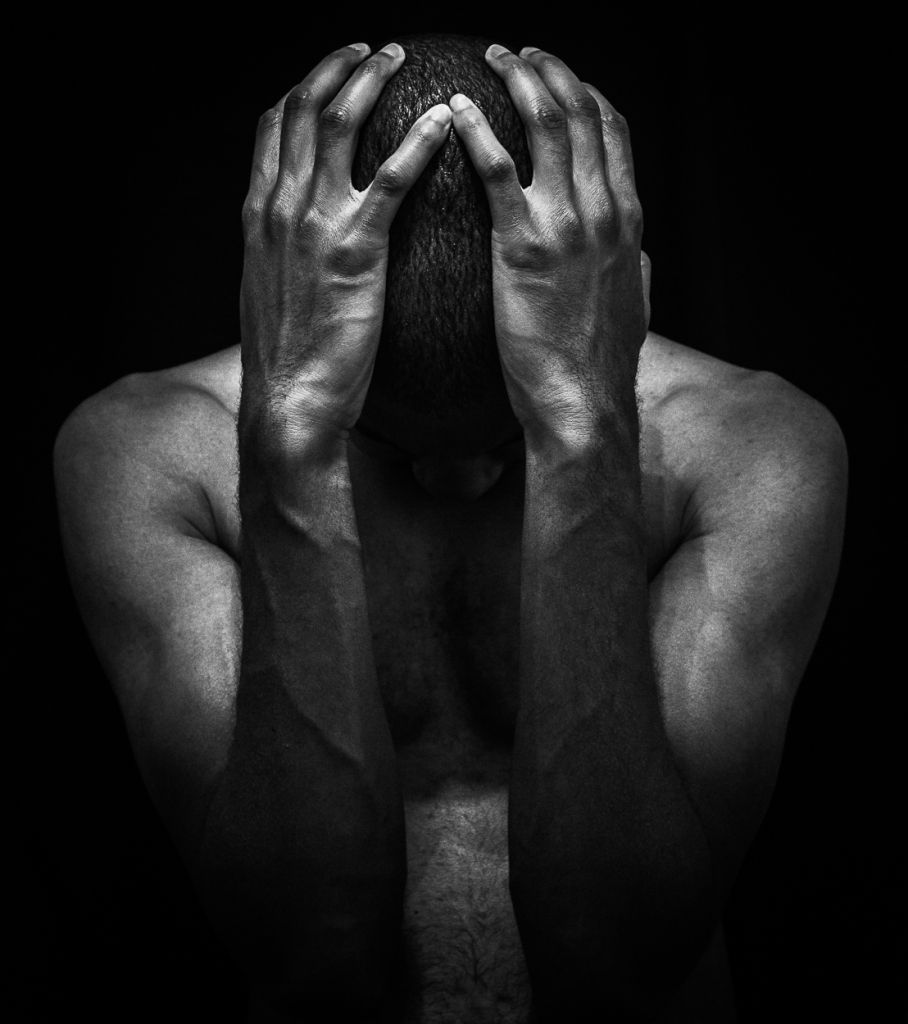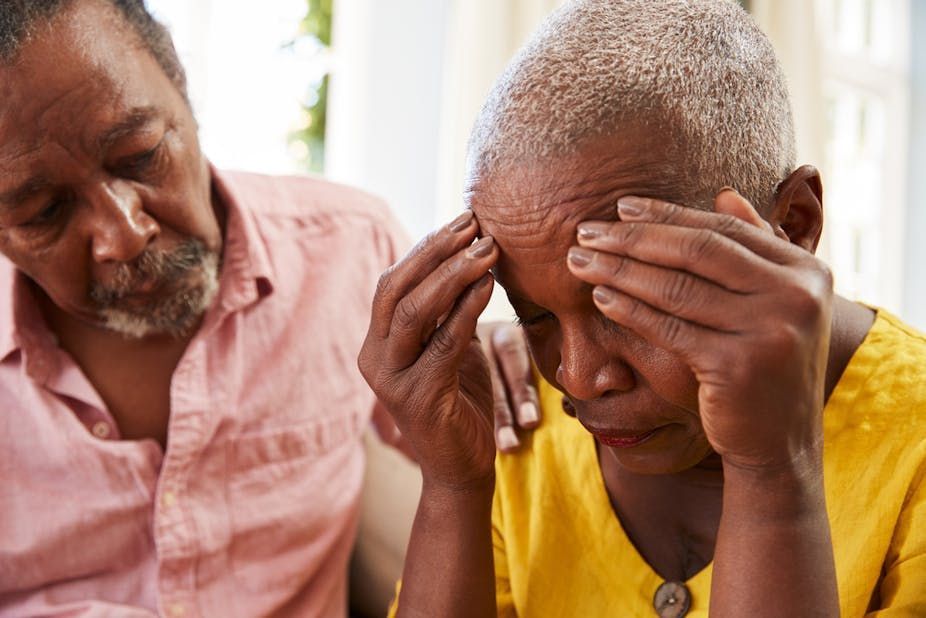Trigger Warning and Disclaimer: The following content includes personal and sensitive experiences. We encourage you to engage with the piece in whatever way feels right for you. You can read our full editorial notice here.

Mental health issues have recently risen as one of the main causes of deaths among African youths and it’s still swept under the rug. (Photo source: BORGEN magazine)
Our social heritage has always been driven and guided by ancestral traditions and concepts that built our generations to what they are today. Thanks to the tools provided before us, we are able to identify ourselves and grow from our own roots. But with the good, there will always be bad lurking in the shadows.
In terms of culture and religion in East Africa and the general African society, there have always been constant taboos circling around mental health. In the past our ancestors would sing songs, chant, play music and games as well as promote family ties in order to maintain a healthy soul and mind. But due to modernism and capitalism, access to these things isn’t as easy as before. And sadly because of these ideologies, there is a huge abundance of gender, religious and culture-based stigmas that prevent individuals from seeking help or participating in psychosocial support workshops.
Stigmas usually arise due to misinformation, ignorance and a lack of awareness of mental illness and trauma affecting people individually, since the focus is usually communal and not on an individual level. Mental health is a socially constructed concept, so different cultural, religious and ethnic groups have various ways of conceptualizing it and deciding which interventions are appropriate.

Social, political and economic struggles have made it more difficult to maintain a healthy mental state (Photo source: Atrium Health)
Mental health is defined by the World Health Organization as a state of mental well-being that enables a person to cope with the stresses of life, realize their abilities, learn well and work well, and contribute to their community. It is a very integral component of health and well-being that underpins our individual and collective abilities to make decisions, build relationships and shape the world we live in.
Mental health is a basic human right. And it is crucial to personal, community and socio-economic development. Mental health in itself is more than the absence of mental disorders. It exists on a complex continuum which is experienced differently from one person to the next with varying degrees of difficulty and distress- and potentially very different social and clinical outcomes. Lack of this equilibrium is what is called mental illness. The more common and prevalent being depression and anxiety, followed by other less common such as bipolar disorder, ADHD and numerous others.
The year 2019 had one of the highest numbers of mental health crisis in recent history due to the COVID 19 pandemic. One in every 8 people, or 970 million people around the world were living with a mental disorder. Anxiety and depression being the most common cases. In 2020, the number of people living with anxiety and depressive disorders rose significantly again during the peak of the pandemic and social lockdowns.
Challenges Facing Mental Health Services in East Africa
As it was slightly touched on at the beginning of the article, the biggest challenge facing the mental health care in East Africa is the stigma and discrimination. This is specifically saddening since despite all the efforts to raise awareness about mental health, stigma and discrimination against individuals with mental illness remain prevalent in many communities. This often leads to social exclusion and limited access to mental health care and support services.
For example in Uganda, mental health disorders were widely believed to be caused by external spiritual forces including satanic powers, curses, and bewitchment. Omulalu is the term used to refer to someone with mental health challenges, literally translating as ‘mad’, ‘crazy’ or ‘insane’. Local beliefs around causation, strong local terminologies and the resultant stigma partly explain why those with illnesses are hesitant to seek treatment.
Other issues include name-calling, ridicule, and chastisement which are very common in our community. This devalues and disfavors people with mental health conditions and often prevents people from accessing treatment. Sometimes a person’s own beliefs about mental illness can prevent them from acknowledging their condition, seeking help, or sticking with treatment. This is mostly influenced by fear from negative external perception and discrimination from friends and family.
Another major challenge facing the mental health care system in East Africa is lack of funds as well as limited resources allocated towards mental health treatment, research, and training. This creates a significant challenge in delivering adequate care and support to individuals in need of mental health services. This also goes hand in hand with limited human resources or professional mental care experts. There is a severe shortage of mental health professionals, including psychiatrists, psychologists, and social workers, in many parts of East Africa. This creates a significant challenge in providing adequate mental health care to the population, specifically in rural and remote areas.
For instance According to WHO, Africa has an average of 0.1 psychiatrists per 100 000 people. Most people living with mental illnesses in East Africa will likely never get professional help.
Mental healthcare for people living in sub-Saharan Africa is inefficient, inadequate and inequitable. The treatment costs are so high to the point that most young people in sub-Saharan Africa are left with no choice but to live with untreated mental disorders or to visit traditional or religious leaders for treatment. Community based mental health services would make a big difference, but due to lack of programs such as support groups and counseling, most people are still hesitant to seek professional help. The communities that take the biggest hit due to lack of these services are the rural areas.
Inadequate legal and policy frameworks backing up mental illness victims by protecting their rights and access to quality care and support are still a major issue in East Africa, leading most to “suffer in silence”. Although there have been efforts to reform mental health policies and laws, there is still much to be done.
Future of Mental Health Care in East Africa

Women in a village in Northern Tanzania are given education on mental illness and ways to deal with them (Photo source: World Economic Forum)
Since most communities in East Africa are socialistic in nature, the mental health care services should be presented and delivered communally while still creating room for individual focus. This will ease the tension and stigma of seeking professional help. The future of mental health care is guided by cultural conscious laws that do not take away the community from itself while still at the same time providing treatment to the people.
Records of number of people treated for mental illnesses should be kept in the Health Management System. This will support policymakers in decision making including ministries of finance when it comes to budget allocations.
Neglecting mental health will make it more difficult to attain many of the Sustainable Development Goals (SDG) related to poverty, HIV, malaria, gender empowerment and education in East Africa since all of these aspects are interconnected and cannot be separated from communal mental health. Improving mental health is a means of unlocking development potential, a neglected link in the development chain in Africa. Investing in this sector means promoting resilience in the East African community. Mental health is both a means to social and economic development, and a worthy goal in itself.
